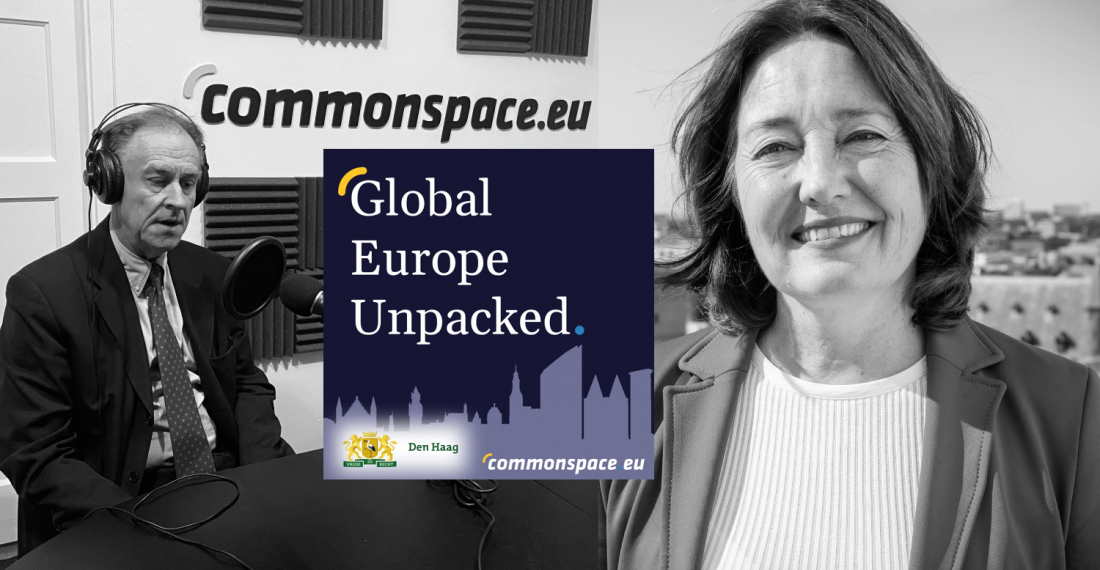“This is an occasion to think about what you would like the European Union to do.”
[The podcast is also available on all of the usual channels, including Apple Podcasts, Spotify and Google Podcasts]
Global Europe Unpacked is back! In series two, commonspace.eu is collaborating with the City of The Hague to bring you several conversations looking at the future of Europe in the world. This series runs alongside the EU’s largest citizen consultation to date, the Conference on the Future of Europe. Our objective is to spark your interest in some of the important issues under discussion and encourage you to get involved.
In this introductory episode, Will Murray speaks to the Head of Representation for the European Commission in the Netherlands, Didier Herbert, about how the Conference on the Future of Europe is taking shape, and how people can – and why they should – get involved. Will then shares a conversation with The Hague’s Deputy Mayor, Saskia Bruines, about the importance of bridging the gap between the local and the international, and how her city of peace and justice is contributing to the initiative.
In 2019, in her opening statement at the European Parliament as a candidate for the presidency of the European Commission, Ursula von der Leyen announced her intention to have a Europe-wide broad consultation to allow “European citizens to play a leading and active part in building the future of our Union”. The result was the Conference on the Future of Europe.
Launched in spring 2021 and running until spring 2022, the Conference is now well underway, with events and activities taking place across the bloc, in both the physical and digital worlds, allowing Europeans to share how they envisage the future of the Union.
Amongst other things, this episode will cover:
- what is happening across European Union in the Conference on the Future of Europe;
- what is happening at the local level, in the City of The Hague, in the Conference;
- what makes this initiative so important;
- why you should get involved; and
- how you can get involved.
You can access the Conference on the Future of Europe’s digital platform to see share your ideas, find events, and to read ideas and event reports, here: www.futureu.europa.eu/






